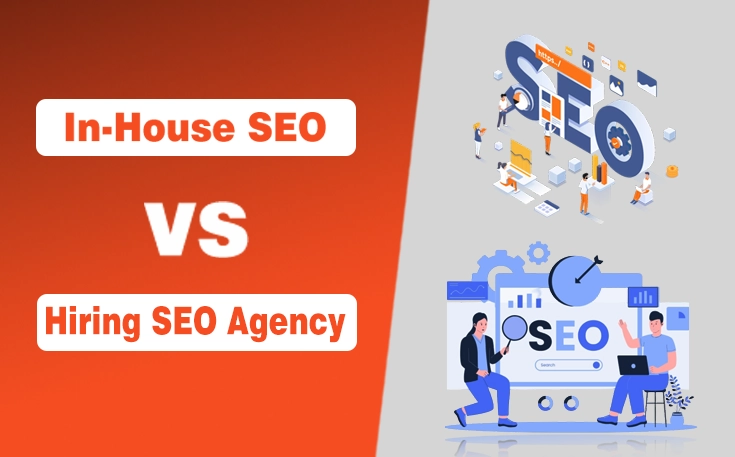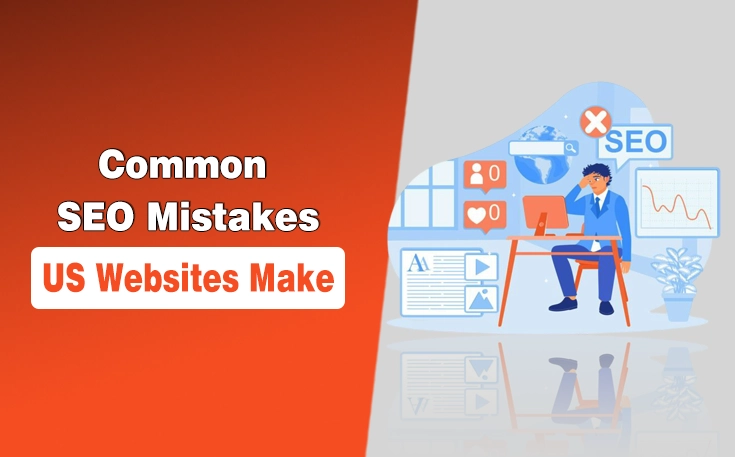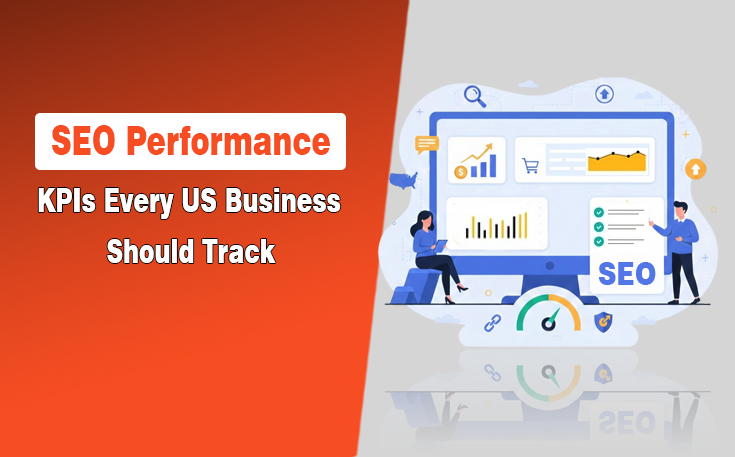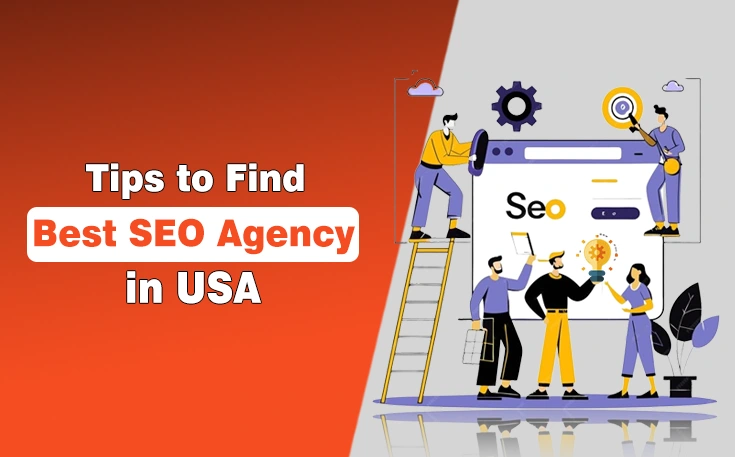In today’s online world, having just a website isn’t enough anymore. Think of your website as your digital store – but who’s going to visit if they don’t know you exist?
With millions of businesses competing for attention online, standing out has never been more challenging. That’s where digital marketing consultants come in.
When I started working on growing my business online, I quickly realized how overwhelming digital marketing can be. There are so many things to think about, social media, search engines, websites, ads, and it’s easy to get lost. That’s when I decided to become a digital marketing consultant, and it made a huge difference.
Over time, I have learned what works and what doesn’t, how to create a plan to reach more people, attract new customers, and grow your business faster.
In this guide, explore the top 10 reasons why hiring a digital marketing consultant can be one of the smartest moves you make for your business.
What is a Digital Marketing Consultant?
A Digital Marketing Consultant is someone who helps businesses grow online. They give advice and create plans to promote a brand, get more customers, and increase sales using the internet.
Here’s what they usually do:
- Make a Plan – Create a digital marketing strategy that fits the business.
- Improve Google Ranking (SEO) – Help websites show up higher in search results.
- Run Online Ads (PPC) – Set up and manage paid ads on Google, Facebook, etc.
- Use Social Media – Plan posts, ads, and grow followers on platforms like Instagram or LinkedIn.
- Create Content – Write blogs, make videos, or other content to attract people.
- Send Emails – Make email campaigns to keep in touch with customers.
- Track Results – Use tools to see what’s working and what’s not, and fix it.
What Qualifications Does a Digital Marketing Consultant Require?
A digital marketing consultant generally needs a combination of formal education, technical skills, and industry certifications to be effective in the role:
Education
- A college degree in Marketing, Business, or a related field
- Ongoing learning to keep up with new trends
Technical Skills
- Knowledge of search engine optimization (SEO)
- Experience with tools like Google Analytics
- Social media marketing skills
- Content creation abilities
- Email marketing know-how
- Paid advertising experience
- Basic website skills
- Data analysis capabilities
Certifications
- Google Analytics certification
- Google Ads certification
- HubSpot certification
- Facebook/Meta certification
- SEO tool certifications
10 Reasons to Hire a Digital Marketing Consultant
Let’s explore these reasons in detail and understand why partnering with a digital marketing consultant could be the game-changer your business needs in 2025.
1. Maximize Your Marketing Reach
A digital marketing consultant can help you tap into underutilized or emerging channels like new social media platforms, content marketing strategies, and email automation. Their broad perspective ensures your brand is visible wherever your customers spend time online.
- Evaluate your current channels (social, email, SEO, etc.)
- Identify untapped platforms like TikTok, Reddit, or podcasts
- Develop a multichannel strategy to maximize brand exposure
- Improve lead generation through better targeting and content optimization
- Offer marketing translation services to ensure content resonates with your targeted audience
With their help, you can reach audiences you didn’t even know existed and stay ahead of digital trends.
2. Save Time for What Matters
Running a business takes time. Delegating difficult, specialized tasks like PPC, SEO, content creation, or web design to a consultant frees you up to focus on operations, product development, or leadership—areas where your expertise matters most.
- Avoid time-consuming tasks like keyword research, PPC management, and A/B testing.
- Reduce internal workloads and delegate execution to experts
- Free up your team to focus on what they do best
- Streamline implementation with faster turnaround times
Their efficiency helps you regain precious hours every week while ensuring high-quality output.
3. Reduce Costs and Improve ROI
It can be more expensive to hire a full-time in-house team for every marketing task. A consultant offers access to high-level expertise at a fraction of the cost, often on a flexible or per-project basis, helping you make smarter budget decisions.
- Access broad expertise without hiring multiple specialists
- Avoid long-term commitments like full-time salaries
- Pay only for the services you need (e.g., project-based or hourly)
- Leverage their access to paid tools at no extra cost
A good consultant focuses on increasing your return on investment (ROI). In this way, you get more value for every dollar spent.
4. Gain Fresh, Expert Insights
Even strong internal teams can develop blind spots. Consultants bring a fresh perspective backed by experience and knowledge of current marketing trends. They offer creative ideas and strategic insights you may not have considered.
- Identify blind spots in your existing strategy
- Spot new opportunities in your industry or niche
- Provide competitor analysis to sharpen your positioning
- Help you break out of stagnant marketing cycles
Their outside perspective can be the breakthrough you need to drive growth.
5. Access Advanced Tools and Tech
From SEO platforms and automation software to data analytics tools, marketing consultants bring premium resources without you having to buy them yourself. This can improve and enhance the effectiveness and efficiency of your campaigns.
- SEO platforms like SEMrush, Ahrefs, or Moz
Email marketing and automation software (e.g., HubSpot, Mailchimp) - Social media schedulers and analytics (e.g., Hootsuite, Sprout Social)
- Conversion optimization tools (e.g., Hotjar, Crazy Egg)
If you hire a consultant, you will gain the benefit of these tools without the high subscription fees or steep learning curves.
6. Get Results Faster
Thanks to their hands-on expertise, consultants can quickly identify what’s working and what’s not, pivoting fast to strategies that drive real results. You won’t need to spend months figuring things out—they already know what to do.
- Quick audits of your website, ad accounts, or social presence
- Immediate improvements to messaging and campaign structure
- Faster implementation of best practices across channels
- Speedy diagnostics of underperforming efforts
You benefit from quicker turnarounds and faster growth trajectories.
7. Brand Consistency
A consultant can help unify your marketing across all channels—from social media to your website to email. They ensure your message and visual identity are consistent, recognizable, and aligned with your brand values.
- Audit of existing brand materials for consistency
- Develop brand guidelines or refine existing ones
- Ensure alignment across web, social, email, and print
- Reduce confusion and build brand recognition
They work with your team to safeguard the integrity of your brand, ensuring all marketing materials reflect your identity.
8. Stay Ahead of Trends
Digital marketing is fast-moving. Consultants are often more proactive than internal teams when it comes to upskilling, trend tracking, and adapting to algorithm changes. However, it helps your brand stay ahead of the competition.
- Stay informed on SEO and social algorithm updates
- Implement new trends like short-form video or AI content
- Offer training or workshops to upskill your team
- Advise on modern tools or tactics competitors might not be using yet
Their finger is always on the pulse of digital marketing, so your brand stays ahead, not behind.
9. Optimize for Local and Global Visibility
Whether your focus is local search (with Google Business and citations) or national/global SEO, a consultant can fine-tune your strategy for visibility in the areas that matter most to your audience.
- Local SEO audits and Google My Business optimization
- Build and maintain accurate local citations
- Develop region-specific content and ad campaigns
- Implement multi-language or geo-targeted strategies
They help ensure your brand shows up in the right searches, at the right time, to the right audience.
10. Flexible, Personalized Strategy
Unlike large agencies with rigid processes, consultants provide tailored solutions that align with your unique business goals. You’re not just another account—you get a partner who listens, adjusts, and delivers on your needs.
- Personalized marketing roadmaps
- Clear KPIs and reporting to track progress
- Adjust strategies based on performance, seasonality, or business shifts
- Collaboration with internal teams for seamless integration
A good consultant becomes an extension of your team—not just an outsourced service provider.
Summary
A digital marketing consultant doesn’t just bring tools and tactics; they bring vision, clarity, and the roadmap your business needs to compete and thrive. With their help, you can stop guessing and start growing—faster, smarter, and with measurable results.
No matter if you are launching a startup or establishing a small business, a specialist digital marketing specialist helps you reach your target audience. They increase visibility, improve ROI, and stay ahead of trends to transform challenges into opportunities. So, always partnered with the right experts to agency that offers reliable and scalable solutions with right strategies.
People Also Ask
How much does a digital marketing consultant cost in 2025?
Digital marketing consultant rates vary widely based on experience, specialization, and location. In 2025, they cost $50 – $6,000 per month.
Can a digital marketing consultant help with AI integration in marketing?
Yes, many digital marketing consultants now specialize in AI implementation for marketing functions. In 2025, this has become one of the most sought-after consulting specializations.
Is it better to hire an individual consultant or a marketing agency?
The choice depends on your specific needs. Individual consultants typically offer more personalized service and direct access to senior expertise, but may have capacity limitations. Agencies provide broader service capabilities and team resources but sometimes at higher costs and with less direct access to senior strategists. Many businesses start with consultants and transition to agencies as needs grow.
Need custom app with amazing features?
Get a Quote




